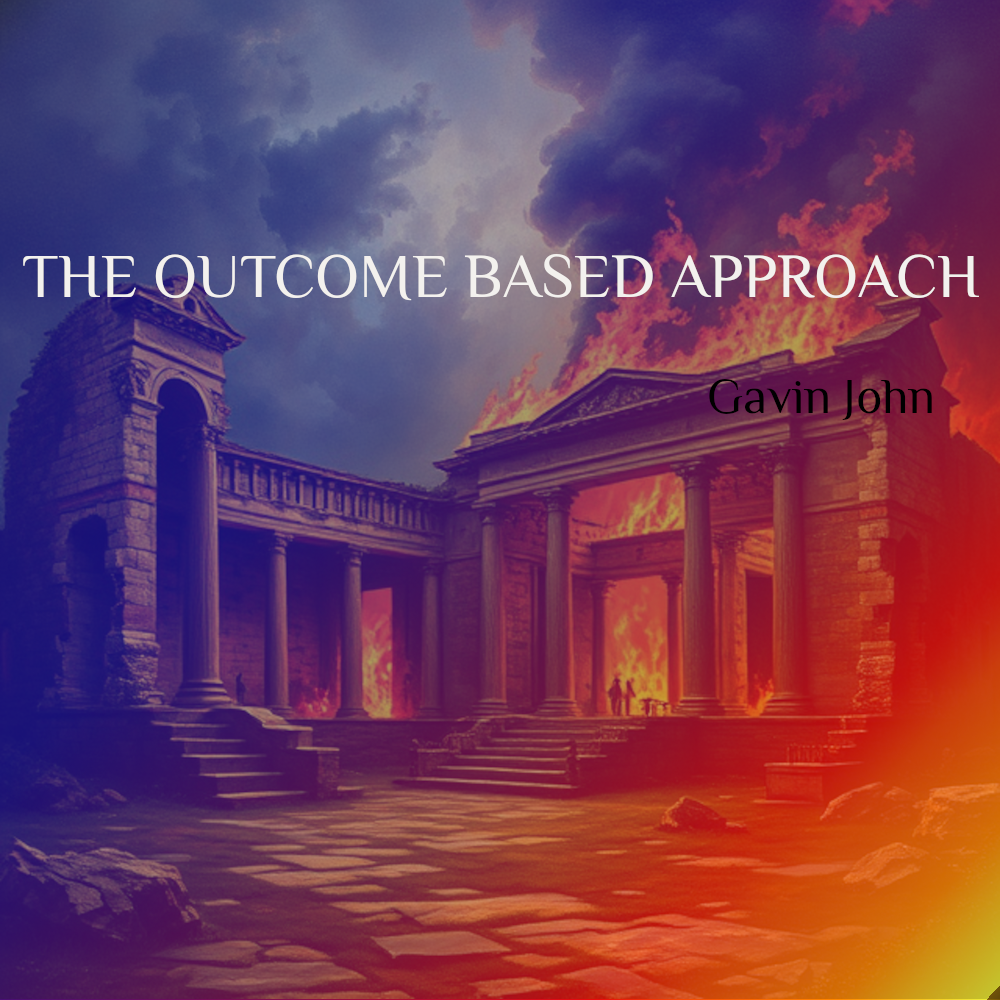Interestingly, it is beyond doubt that western society has been conditioned to view the end to be of more significance than the means. This is the Outcome Based Approach. We can see this concept in its political entirety in Niccolò Machiavelli’s work “The Prince”. However, I am going to explain that the outcome is ever rarely within our control. What lies in our control, is that which we do along the way. Doing the right thing for the sake of doing the right thing.
I am aware that this is a concept that may need to be felt, rather than explained. However, I will attempt to articulate this reality.
Focusing on Externals
Many people seek validation through external achievements, appearances and possessions. They hope this will bring lasting happiness. However, this approach often leads to dissatisfaction and emotional distress. The reasons behind this tendency and its limitations lie in psychology, societal influences and empirical evidence.
Why External Validation?
Humans are social beings, and seeking validation from others is rooted within our biology. Historically, social approval meant safety and survival. In modern society, this instinct manifests in striving for external markers of success. Generally speaking, people search for happiness by acquiring wealth, pursuing beauty standards or climbing status hierarchies. Social media exacerbates this tendency; platforms like Instagram and TikTok reward external displays with likes and followers, reinforcing the need for external validation.
Does it Lead to Happiness?
Research consistently shows that external validation does not lead to long-term happiness. A study from the University of Rochester found that individuals who pursued extrinsic goals (e.g., wealth, fame or image) reported lower life satisfaction and higher levels of anxiety and depression compared to those who focused on intrinsic goals like personal growth and relationships.
The “hedonic treadmill” explains why. People quickly adapt to new external achievements, making them crave ever-larger successes to maintain the same level of happiness. For example, after receiving a raise or buying a luxury car, the joy is fleeting, and life satisfaction soon returns to baseline levels.
The Role of Social Media
Social media further fuels external validation. A study published in Computers in Human Behaviour revealed that heavy social media users reported higher rates of envy and reduced well-being due to constant comparisons with others’ curated lives. Approximately 88% of people report comparing themselves to others online often leading to feelings of inadequacy.
What Truly Leads of Happiness?
Authentic happiness stems from intrinsic factors. Studies by positive psychologists such as Martin Seligman highlight the importance of meaningful relationships, a sense of purpose and personal growth. In reality, Islam offers all of this and more. Within the Islamic lifestyle you have a community, a very strong purpose and the exoteric practice, a clear path of self-development. For instance, people who focus on community engagement and strong personal connections report significantly higher life satisfaction.
Lasting happiness lies not in the fleeting approval of others but in a deeper alignment with one’s authentic self. Therefore, by accepting Islam and walking the path of the shariah, one finds tranquility and fulfilment.
“Who have believed and whose hearts have rest in the remembrance of Allah. Verily in the remembrance of Allah do hearts find rest.”
Ar-R’ad 13:28
Hedonism
Hedonism is a philosophical outlook centred on the pursuit of pleasure as the highest good and primary focus of life. It posits that pleasure and the avoidance of pain are the ultimate measures of well-being. While often reduced to indulgence in material or sensual pleasures, hedonism has a more nuanced interpretations, including intellectual and emotional fulfilment.
Origins and Epicurean Philosophy
The roots of hedonism trace back to ancient Greece, with Epicurus (341-270 BCE) being the most prominent advocate. Epicurus, is often misunderstood as a proponent of indulgent pleasure. He actually championed a refined form of hedonism focused on ataraxia. For Epicurus, the key to happiness lay not in excess but in simple living, cultivating friendships and minimising desires. He argued that pleasures of the mind outweighed fleeting bodily pleasures, emphasising moderation and introspection.
Hedonism in Modern Western Society
Western modernity has adopted a distorted version of hedonism, emphasising materialism and instant gratification. The consumer-driven culture equates happiness with acquiring goods, enjoying luxuries and fulfilling personal desires. Advertising, social media and entertainment reinforce this narrative, presenting pleasure as the ultimate goal. This version of hedonism diverges from Epicurean ideals, focusing more on consumption and less on mindful living.
The dominance of hedonism in modernity is a great example of the outcome based approach. It has arisen from the decline of traditional structures like religion and community that previously offered purpose and meaning. In their absence, many turn to pleasure-seeking as a substitute. However, this relentless pursuit often leads to dissatisfaction, as transient pleasures fail to provide lasting fulfilment.

The Antidote to the Outcome Based Approach
An inner locus of control is the belief that one’s own actions, decisions and mindset significantly influence their outcomes in life, rather than external circumstances. This perspective empowers individuals to take responsibility for their lives and fosters resilience, personal growth and happiness.
Research consistently links an inner locus of control to greater well-being. People with this mindset tend to feel more in charge of their lives, which reduces feelings of helplessness and anxiety. For example, a study published in the Journal of Positive Psychology found that individuals with an inner locus of control shape their destinies through effort and choices.
This concept aligns with ancient wisdom found in Stoic philosophy and spiritual traditions. Stoics like Marcus Aurelius emphasised focusing on what is within one’s power. This consisted of your own thoughts, actions and opinions. Similarly, spiritual teachings often stress that happiness is an internal state, not dependent on external circumstances.
In modern society, where external validation and material success are often emphasised, many fall into the trap of seeking happiness outside of themselves. However, this approach leads to fleeting satisfaction, as external factors are unpredictable and ever-changing. By contrast, cultivating an inner locus of control helps individuals anchor their sense of worth and joy in internal stability, such as personal values, self growth and gratitude.
Developing an inner locus of control involves practices like mindfulness, self-reflection and goal-setting. It requires a shift from blaming circumstances or others, to taking proactive steps toward desired outcomes. When people realise that happiness stems from their mindset and actions rather than external events, they unlock a deeper, more lasting form of fulfilment. True happiness, it turns out, begins and thrives within.
Infiltration of the Education System
The modern education system predominantly emphasises outcomes. For example, grades, test scores and credentials. This is a clear indication that the modern education system has been infected by an outcome based approach. While this approach aims to measure achievement and create benchmarks, it often undermines the deeper purpose of education: fostering curiosity, creativity and critical thinking.
The Outcome Based Approach in Education
From an early age, students are conditioned to prioritise results. Standardised tests and competitive college admissions create a culture where success is narrowly defined by quantifiable metrics. Teachers, too, are incentivised to focus on these outcomes, as school funding and evaluations often depend on test performance. Consequently, learning becomes transactional, as students study not to understand or engage but to score well on exams.
This fixation on outcomes fosters several negative consequences. Firstly, it reduces intrinsic motivation. Studies, such as one published in the Journal of Education Psychology, show that students who focus on grades rather than mastery are less likely to retain knowledge and apply it creatively. Second, it creates anxiety and burnout. Constant pressure to achieve specific outcomes leaves little room for exploration or failure, which are critical components of genuine learning.

The Value of Focusing on the Process
In contrast, process-orientated education emphasises skills, exploration and the joy of learning. This approach encourages students to engage deeply with material, ask questions and develop a growth mindset. Psychologist Carol Dweck’s research highlights that students who focus on learning as a process, rather than fearing failure are more resilient and perform better in the long term.
An education system focused on the process would prioritise collaboration, problem-solving and experiential learning. For example, Finland’s education model, which de-emphasises standardised testing, has consistently produced high-achieving, well-rounded students. This model allows learners to develop critical life skills and a love for learning that transcends the classroom.
Why the Shift is Crucial
Focusing on outcomes trains individuals to seek external validation rather than intrinsic satisfaction. In adulthood, this mindset can lead to dissatisfaction, as success becomes tied to external benchmarks rather than personal growth. Shifting the focus to the process can cultivate lifelong learners who value effort, creativity and adaptability. Therefore, cultivating qualities that are essential in an ever-changing world.
Ultimately, education should be a journey of discovery, not a race for grades. By shifting priorities from outcomes to the process, we empower students to thrive intellectually and emotionally.

